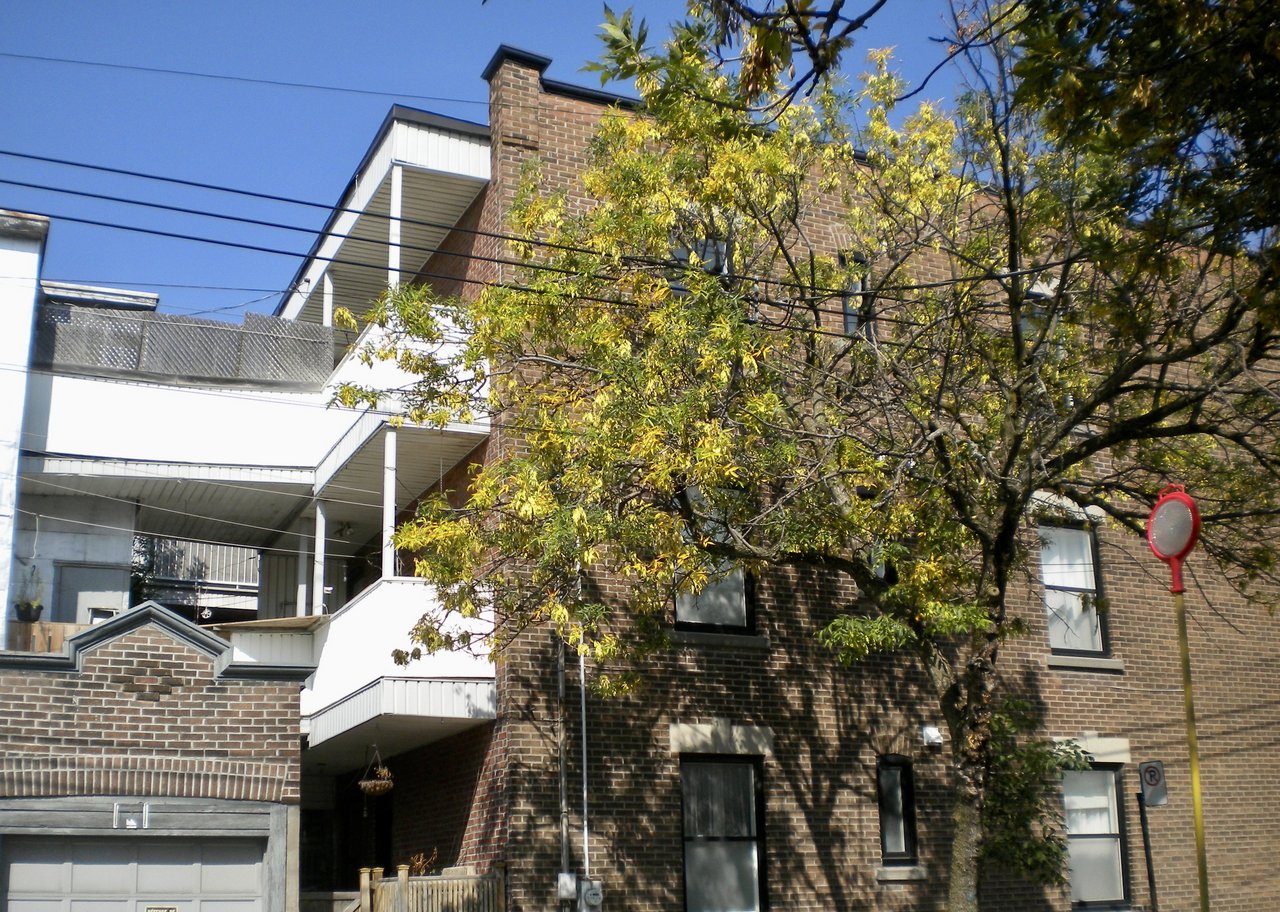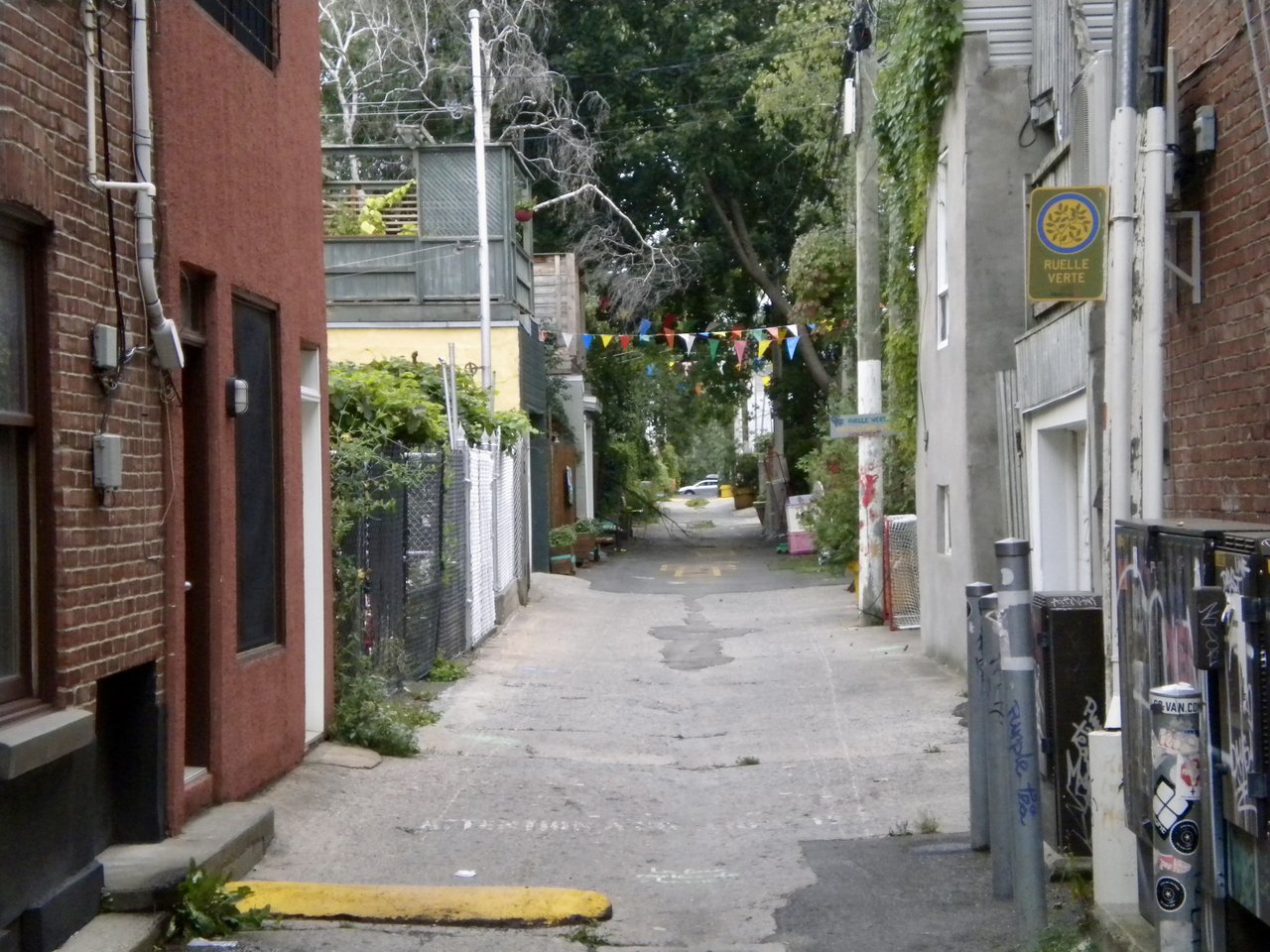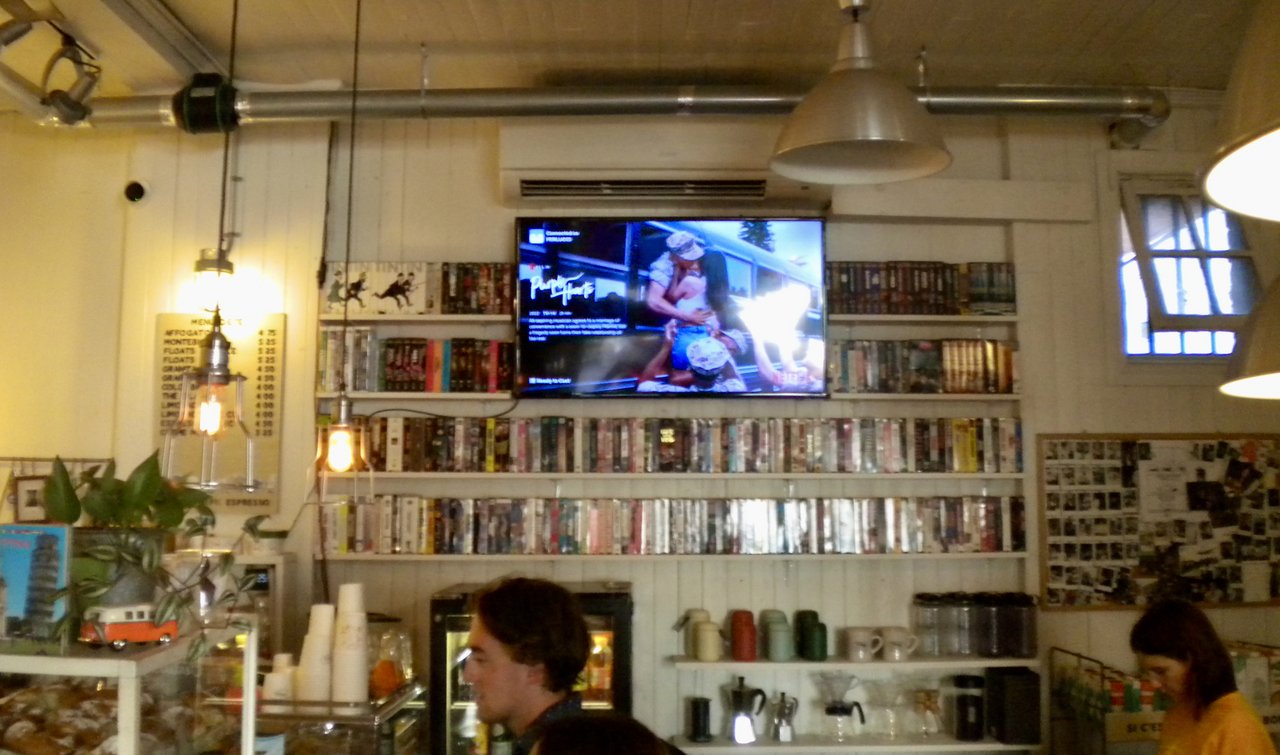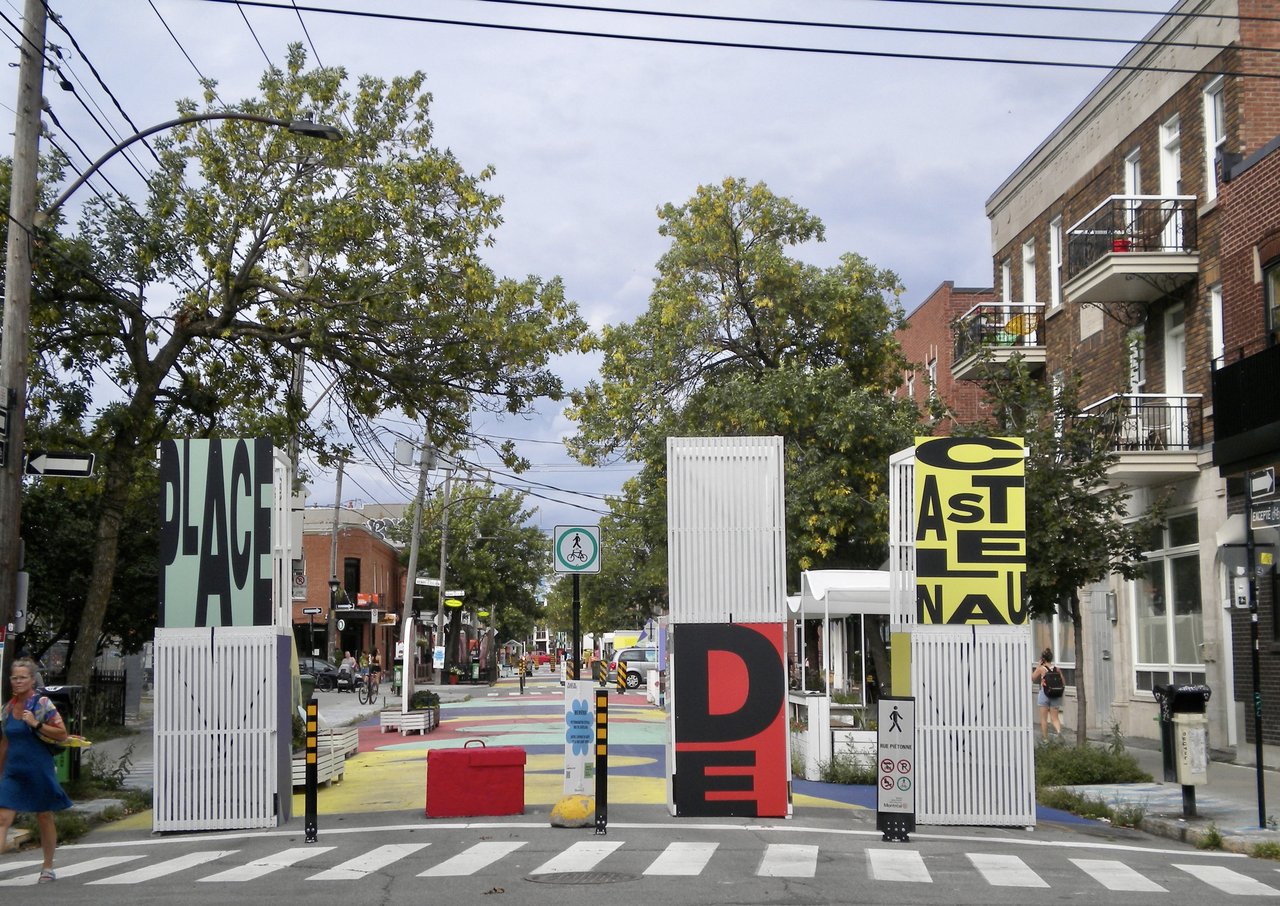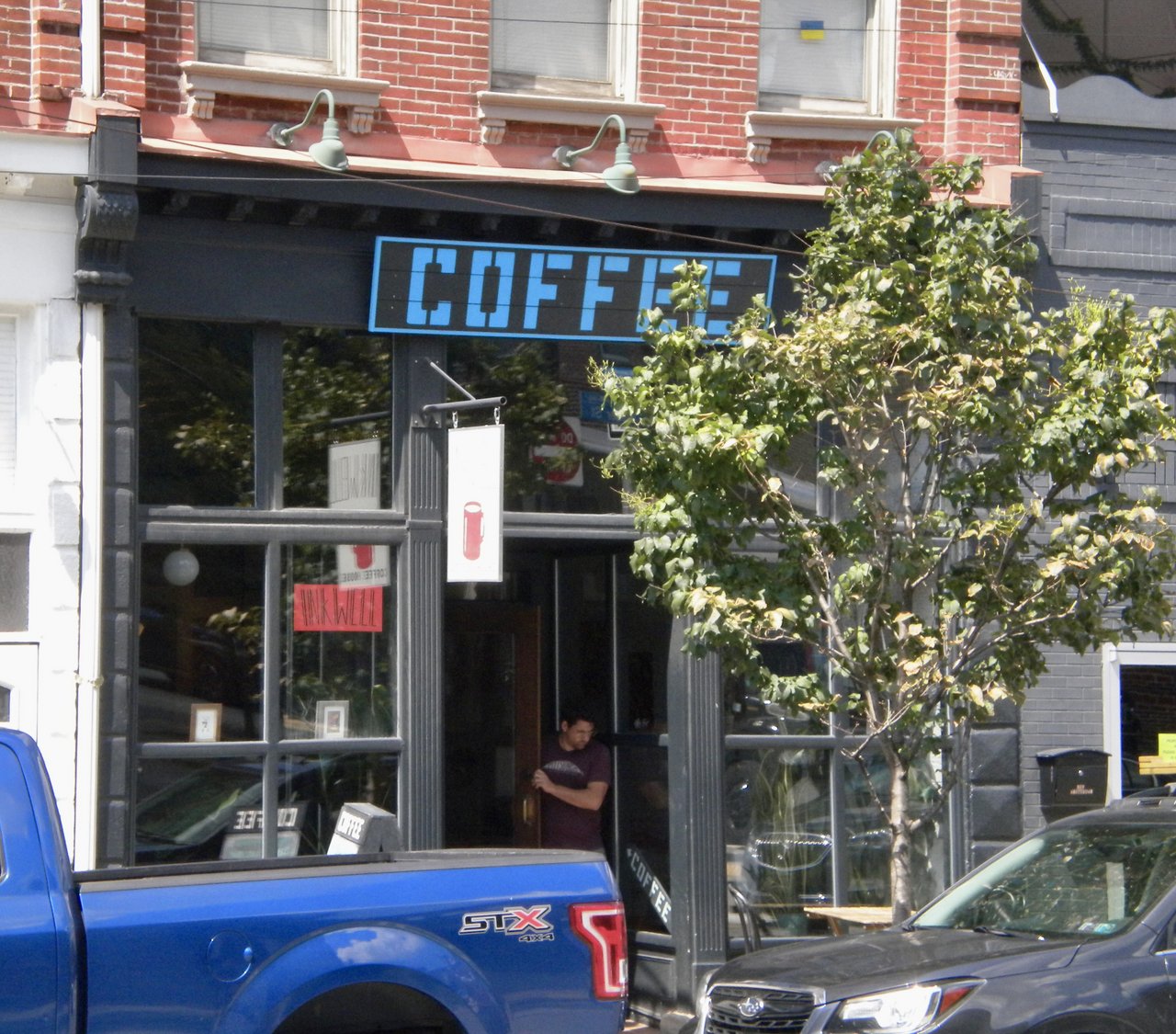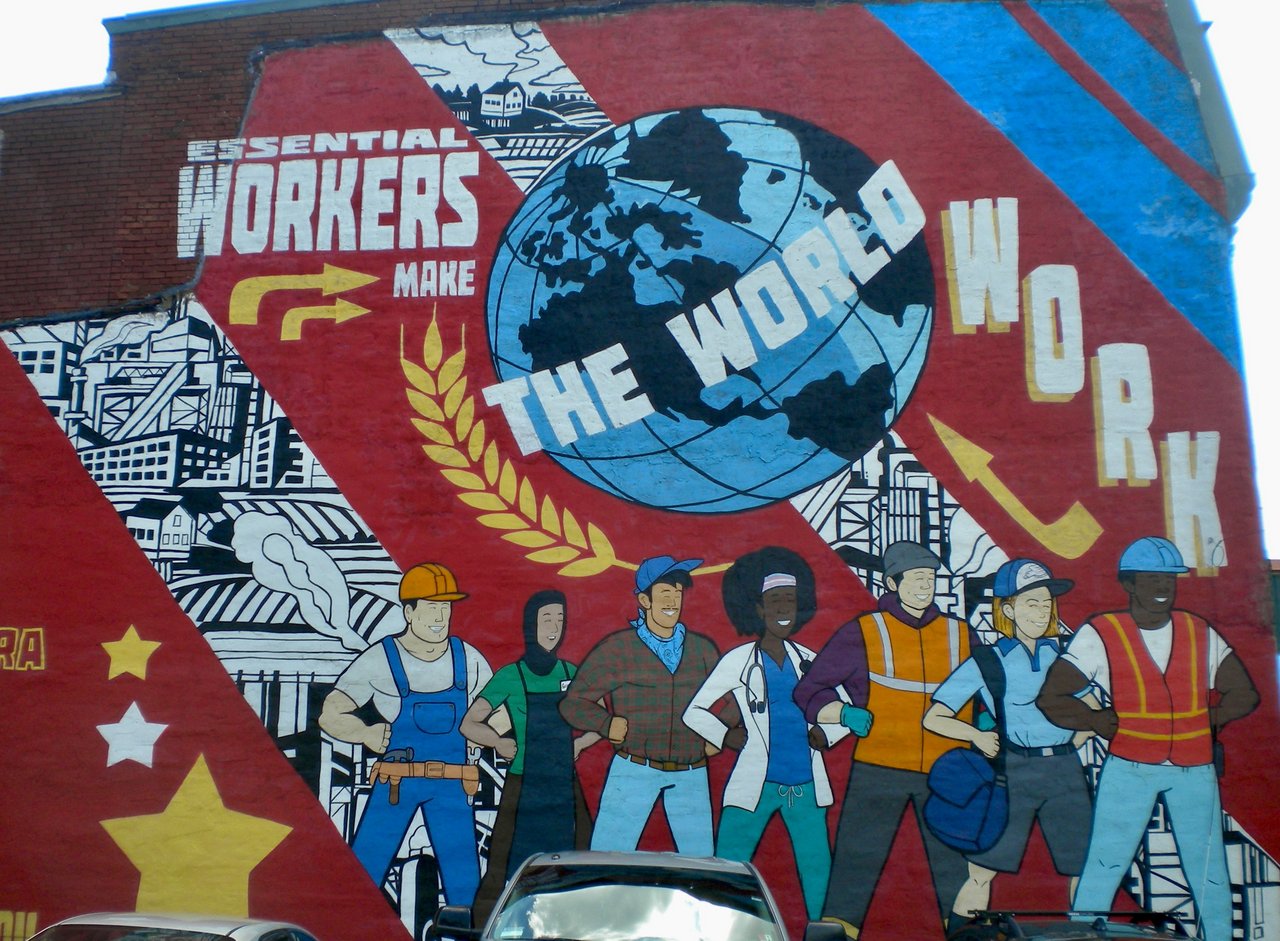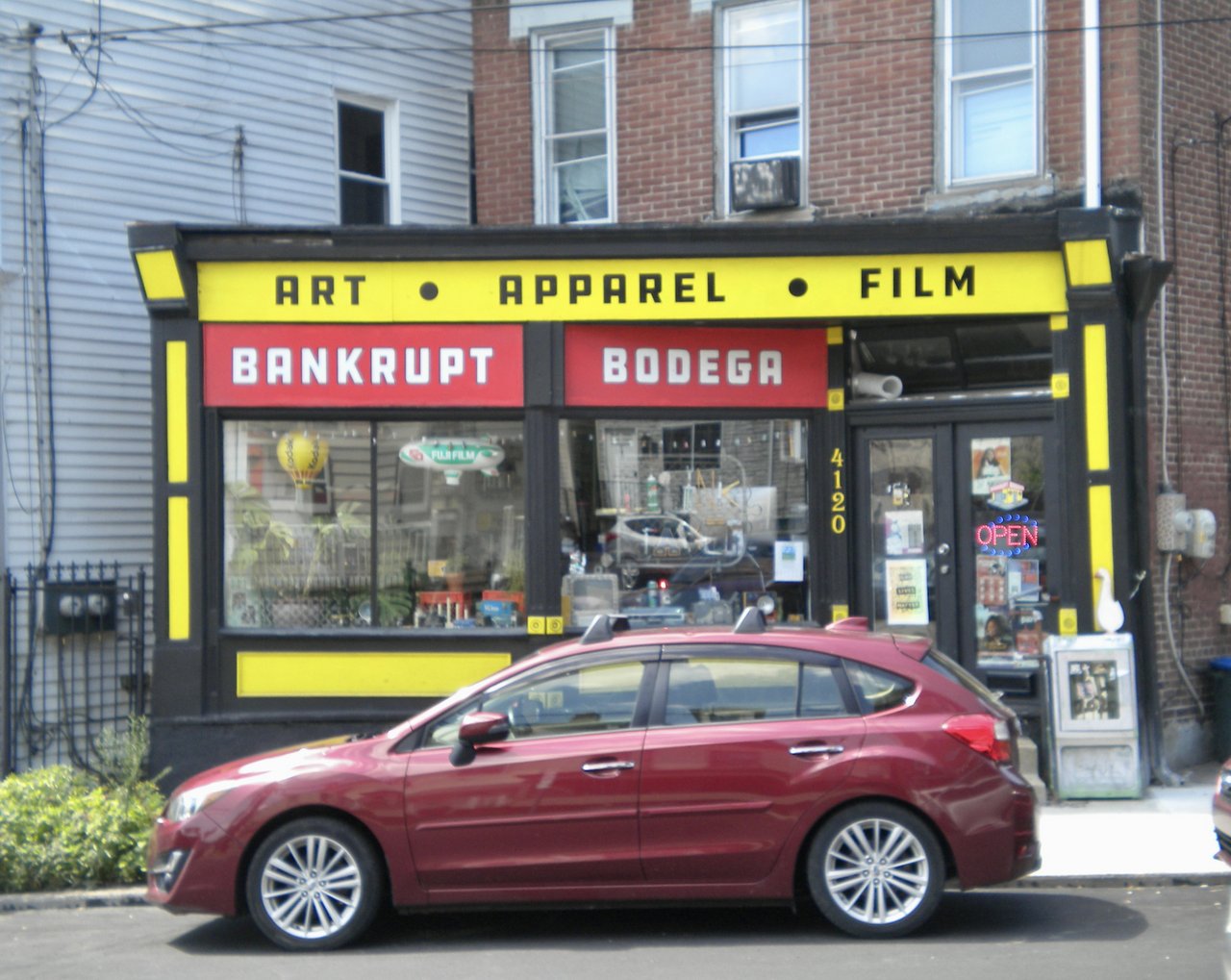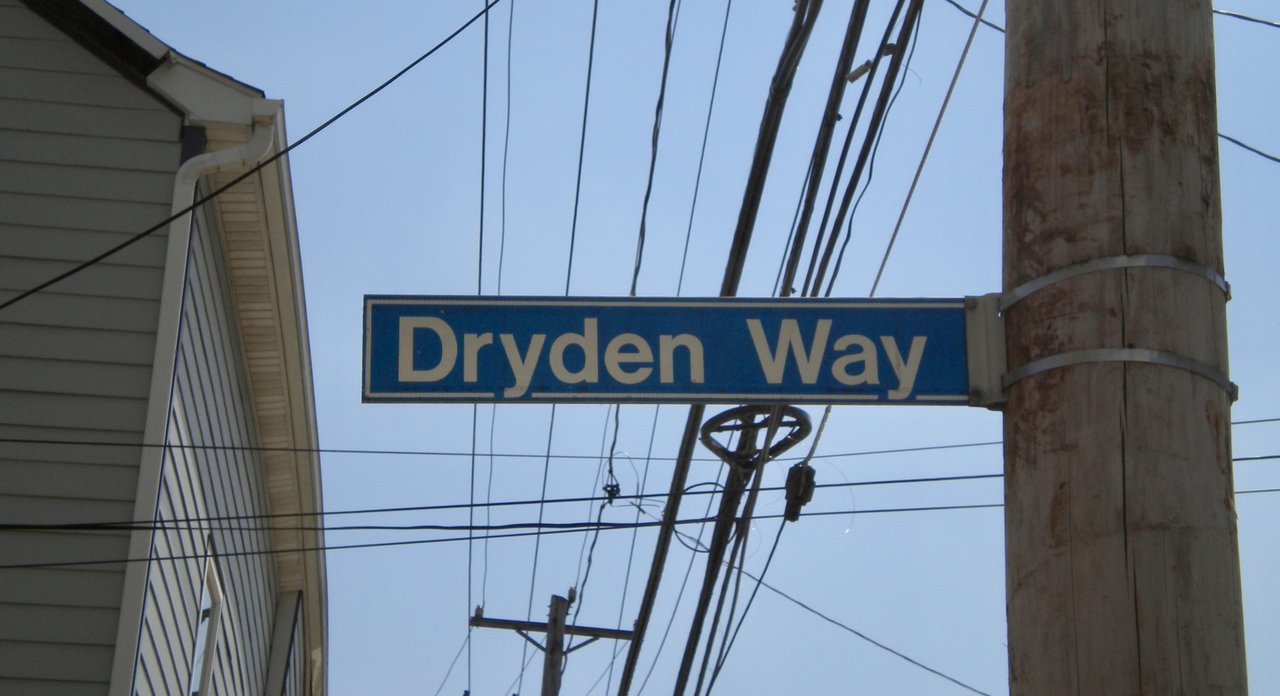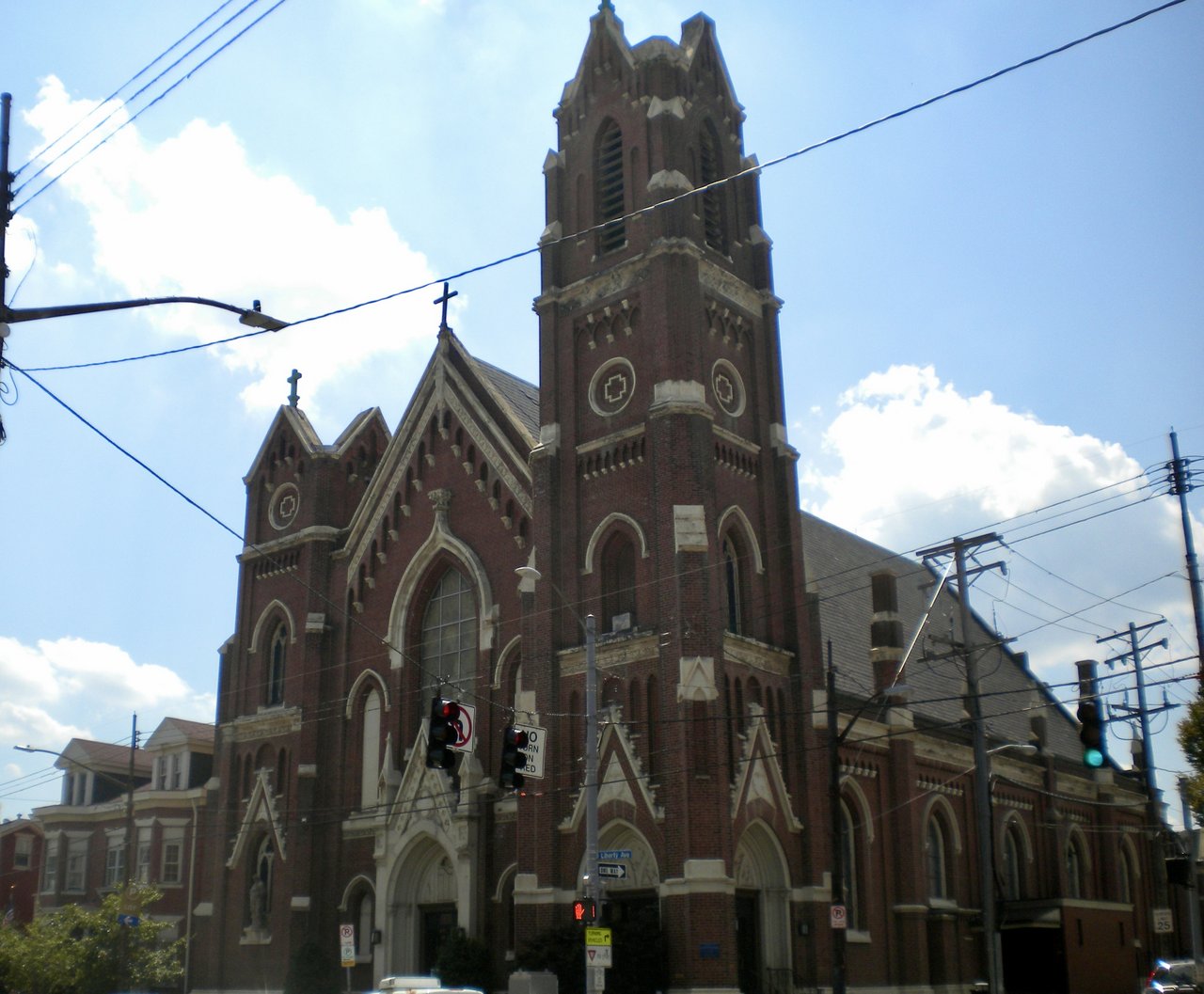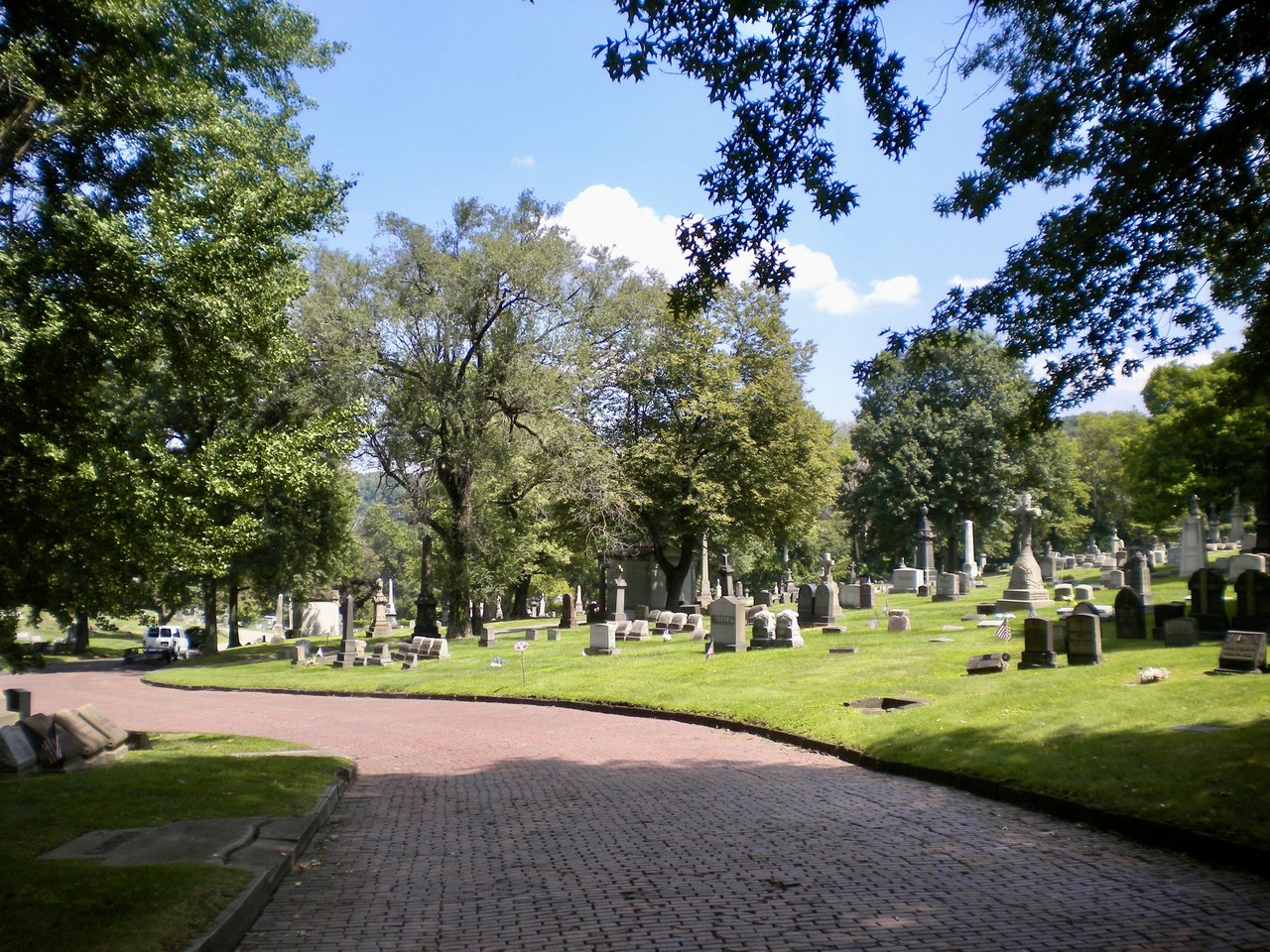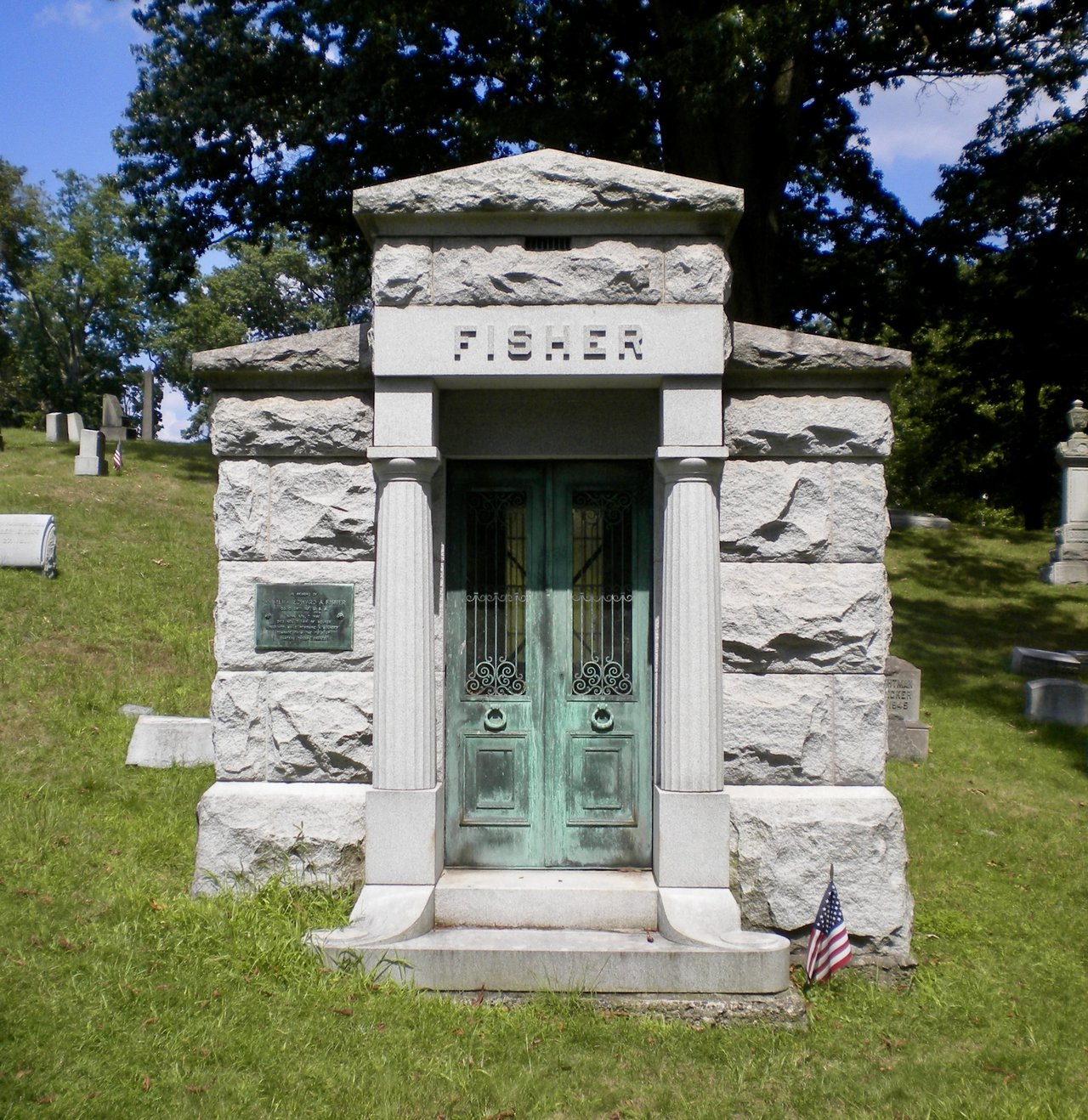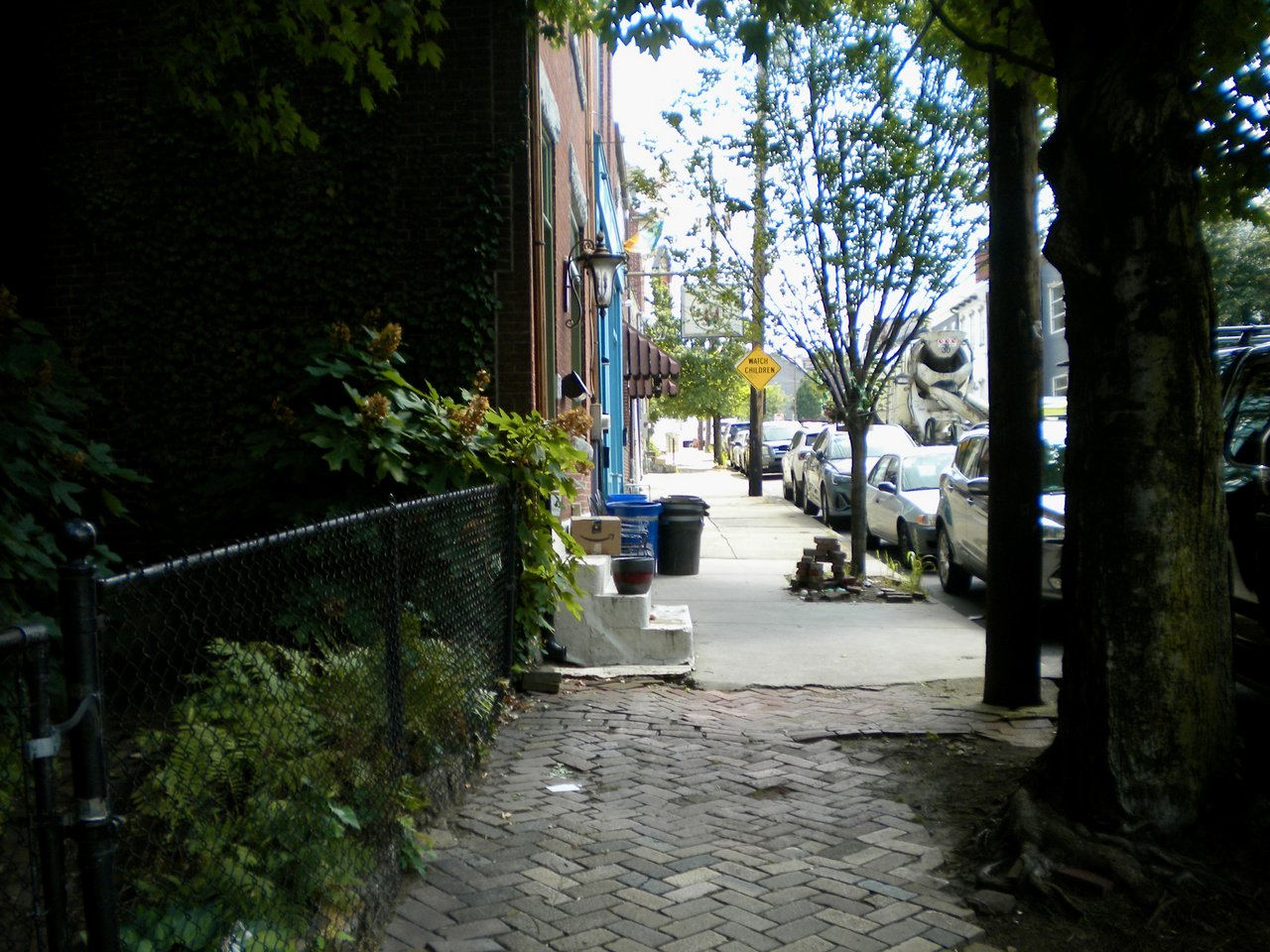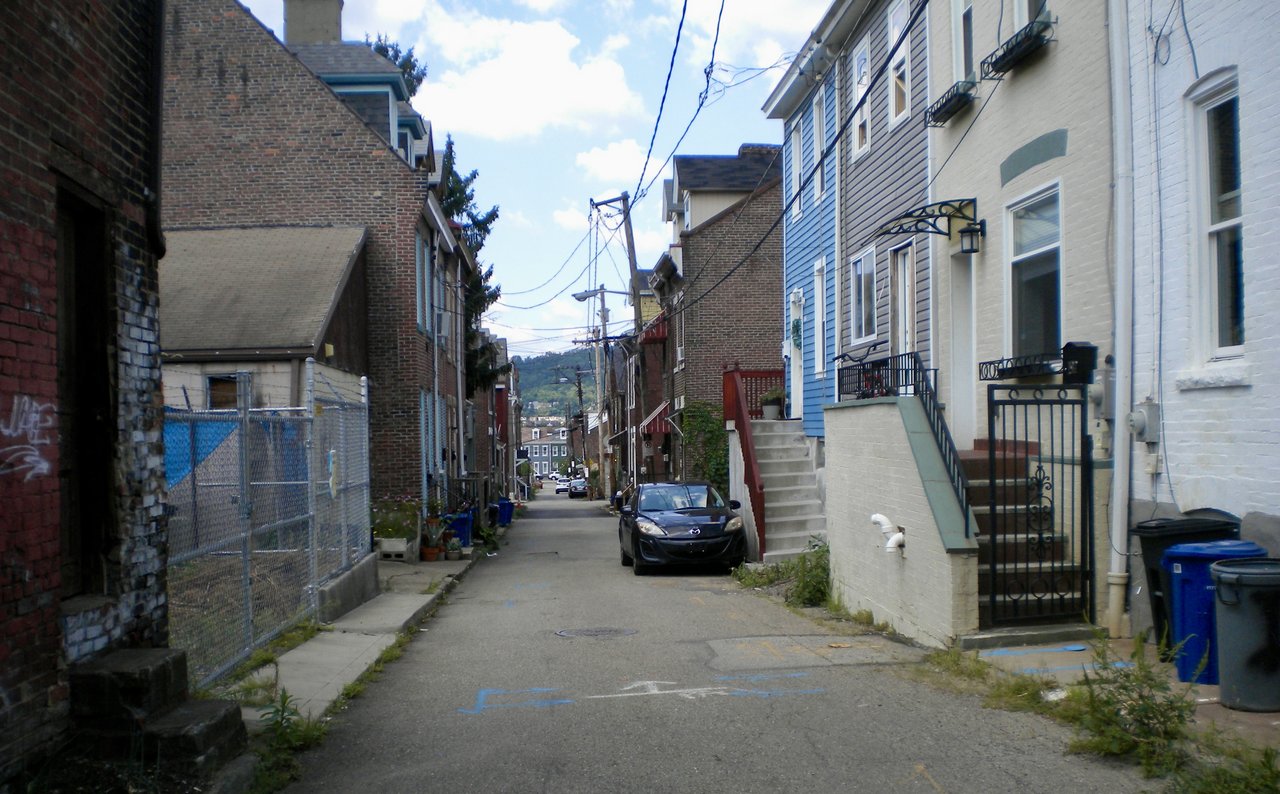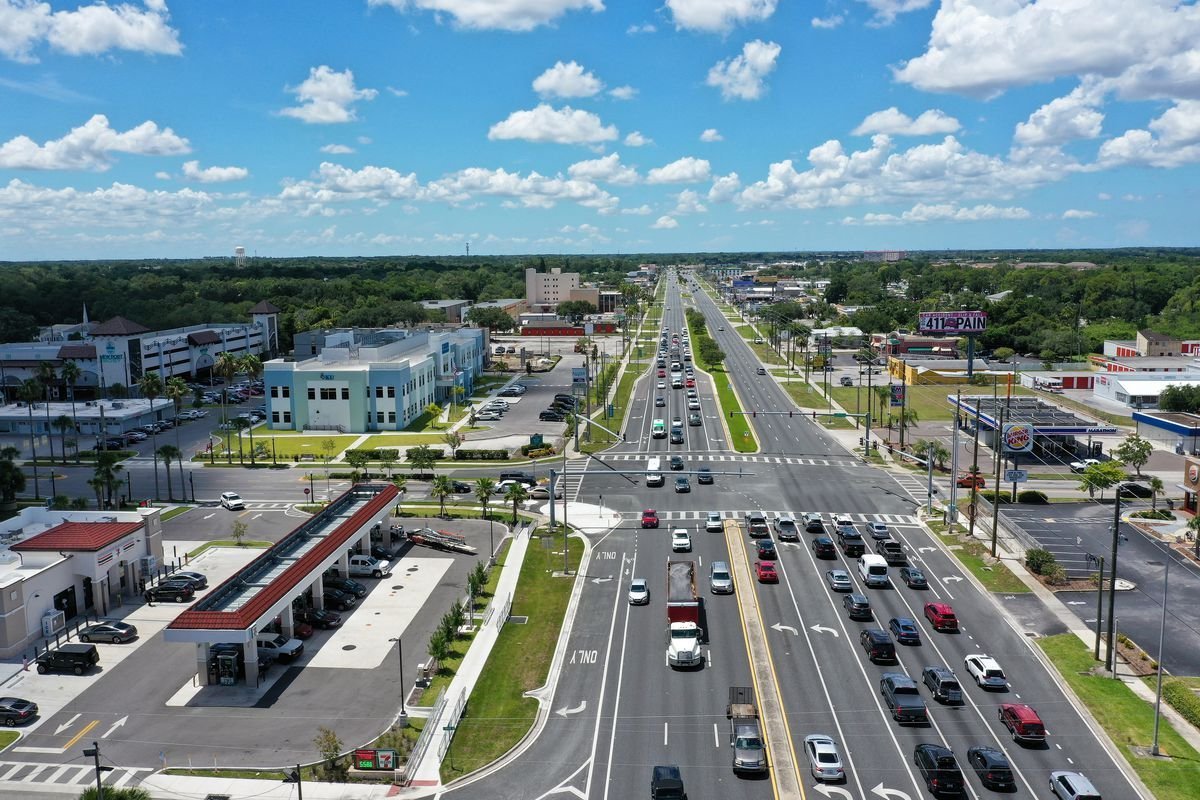Je suis arrivé
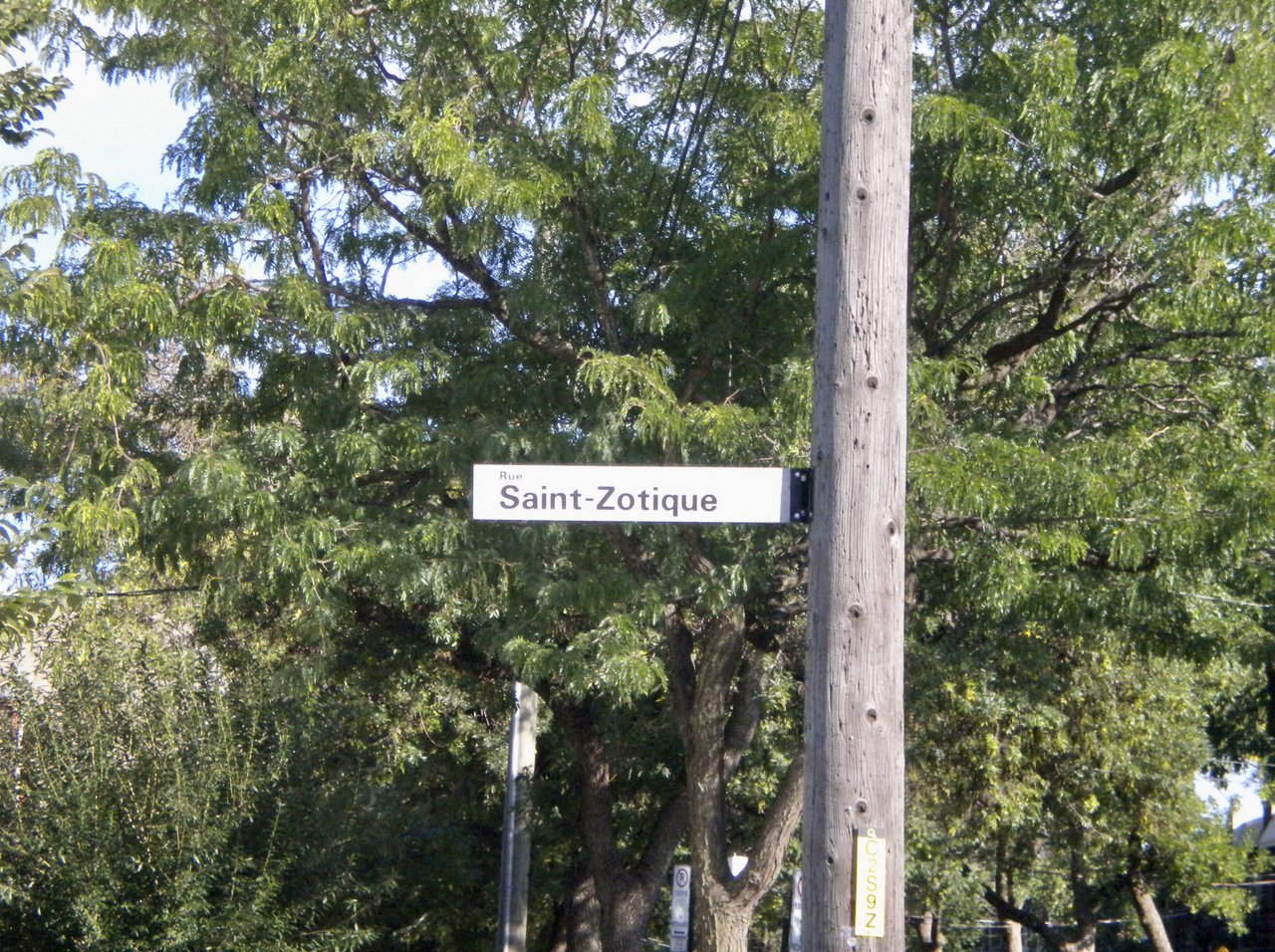
Apologies for the lack of updates for those of you hanging onto your seats
wondering where I've been all weekend.
I left Pittsburgh and stayed with my aunt and uncle at their country
house, nestled in the cornfields of the Finger Lakes. It was lovely to see
them and to reconnect after they visited me down in St Petersburg in
April. I woke up to incredibly fresh air, dewey grass, and the most
profound silence I'd heard in months. They also invited me to the annual
Borodino Pancake Breakfast, a charity event for the volunteer fire
department in the small town where they live. Unfortunately I took exactly
zero photographs the entire time I was there, and I'm not sure why.
I left their house yesterday morning and headed north. Being that my
apartment in Montreal wasn't going to be ready until the last day of the
month, I wasn't sure what I was going to do initially. I thought maybe I'd
find some camping on the St Lawrence River—perhaps on Wellesley Island.
But once I got up there, the border called to me and I decided to just go
to Canada and figure it out once I was up there.
The border crossing was surprisingly uneventful. I made sure to use
Canada's online arrival documentation tool ahead of crossing the border,
in order to submit my vaccination documentation. But when I arrived at the
border, I was hardly scrutinized at all. The customs official merely asked
if I had any alcohol, tobacco, or firearms, and then sent me on my way. No
Covid screening and no in-depth questioning about where I'd stay.
Whenever I'm in Canada, it always feels like a slightly different version
of the United States. The highway signage is similar but just a bit
different. There's a sense you're still in North America, but with
a slightly more European flair. I was taken aback by how empty most of
Ontario is, at least along 401. The landscape was flat and thick with
trees.
Once I crossed the border into Quebec, the signage went from bilingual to
francophone. I suddenly had to put on my fast-learner hat while driving to
make sure I was still heading in the right direction and not breaking any
laws that were, at this point, only communicated in French.
As I've said in previous posts, one of the prinicpal reasons for this trip
is to see how other cities are organized. One thing I noticed once
I entered the Montreal metro area was that highway 20 suddenly became
a surface street through the suburbs. There was no grade separation until
I reached the Montreal city center (Centre-Ville).
Once the downtown skyline emerged, I knew I was about to embark upon the
most intensive urban driving I'd done since the last time I drove a rental
car in New York. And my GPS device in my car, while excellent for
navigating American streets, isn't loaded with Canadian city data. So
I was on my own, having to navigate Montreal from memory from the maps I'd
inspected in the months leading up to my trip. That, as you can imagine,
was a bit of a rush.
I took the Centre-Ville exit toward Rue Guy and ended up on an insanely
busy boulevard in the heart of downtown Montreal. I had forgotten how much
pedestrian activity lights up the streets of a cosmopolitan city. If
I hadn't been driving Vincent through all of it, I would have been
delighted. On this particular street, most left turns were prohibited, but
I knew from memory that I needed to head due northwest to get to the
quieter neighborhoods.
I somehow found my way to Boulevard Saint Laurent and was in the
most hectic urban driving I'd ever done. Cyclists weaved between lanes.
Cars would use lane lines as mere suggestions. The street was bustling
with activity, it being such a beautiful Sunday afternoon. Again, I was
both struck by how beautiful it all was, but also couldn't look away from
the street lest I hit a pedestrian or rear-end another vehicle.
At this point, all I wanted to do was to park Vincent on a quiet street,
but there were very few of those abound. What residential streets I could
find had restrictive parking, with signs saying things like "No Parking
9h-23h JEUDI 1 AVRIL AU 1 DÉC" (9:00am to 11:00pm Thursdays from April
1 to December 1). Again, it was imperative that I learn quickly. And
I love that about travelling to places where I don't know the language.
You're forced to learn and adapt.
I kept driving, trying desperately not to hit anyone while also keeping an
eye on the street signs to see if I could find a spot where Vincent could
take a nap. Finally, I came across what appeared to be a retirement home
with unrestricted parking out front. I parked Vincent and took a deep
breath.
Now I was tasked with finding a place to stay for these few nights before
my reserved flat was available. So I hopped into Vincent's belly and took
out my computer. I've been using the Nokia as a hotspot to access the
Internet, so I reached for it in the front seat. But it wasn't there.
I searched high and low, and couldn't find my cell phone. I took another
deep breath.
Here I was, in a francophone city, tired and hungry, and unable to secure
lodging for the night. I calmed myself down by remembering I could stealth
camp in the van for the night if I had to.
I packed my backpack and went searching for a cafe or bar where I could
use the wifi. Somehow I couldn't find a single place. I found one cafe and
asked the owner if he had wifi, but he didn't allow his customers to use
it. This reminded me of the cafe culture in Europe, which I had long
forgotten about: Most cafes in Europe are not computer work hubs like they
are in the United States. It's a bit frowned upon if you post up in
a European cafe with your laptop.
As I walked, I tried my best to enjoy myself in spite of the
circumstances. I had arrived! I was finally here, after months of planning
and anticipation. And so far, the streetscape was living up to my
expectations. The streets were vibrant, the people beautiful, and there
was a sense that people here valued aesthetics and the arts and urban
density and diversity and bicycling and all the other things I wish
America had more of.
But I was still without a phone.
I returned to Vincent and searched yet again, just to be sure. I couldn't
imagine where I might have left it, since the only place I stopped in
Canada before Montreal was a rest area on 401. I didn't remember bringing
my phone inside or using it, so I couldn't imagine I had left it there.
I decided in one last desperate attempt to move the passenger seat back to
see if somehow it was lodged in the seat somewhere. I pulled the lever
that engages the seat, and my trusty Nokia sprung out into view. Dieu
merci!
Suddenly the world got a lot brighter. I went online and booked an
apartment for the few days nearby, and walked over to it since it was
already ready for a guest.
That evening, after settling in a bit, I decided to go exploring a bit.
Throughout the pandemic, I've desperately missed urbanism. I love to ride
metros and explore cosmopolitan cities on foot, so I decided to go find
the nearest Metro stop and take a ride back to Saint Laurent.
As I did, a feeling of glee and relief overcame me. I realized I was
finally in a place where I didn't have to spend all my transit time inside
of a glass and metal box, insulated from the community and forced to pay
attention at the expense of being able to wander, to pause, and to
appreciate.
When I disembarked the Metro at Mont-Royal, I emerged on the ground to
a bustling pedestrian-only street, with shops and sidewalk cafes and
hoardes of beautiful people. I felt like I had arrived home. Maybe not
home, but at least, I had arrived in a place where I felt whole. There was
such a spirit of joy in this place. People could walk down the street
without being constantly vigilant of automobile traffic. I had a grin
ear-to-ear as I slowly made my way.
I've spent today at the apartment settling in, especially since it's going
to be quite hot all day today. I went grocery shopping (which is
incredibly pleasant here, since it was a mere five minute walk to the
supermarket down safe low-speed streets with charming rowhouses to look
at). And I've been practicing my French, bit by bit, although I doubt I'll
be using much of it except to say "Je ne parle pas français."
It is so incredible to me that this city exists on the North American
continent. I do not feel like I am only a few hours north of the United
States here. Montreal has the same sort of multi-ethnic feel as New York,
but with more European influence in their urban design and lifestyle.
I have a feeling, if I meet people here and learn a bit of French, that
I won't want to go back to America. On verra ça.



